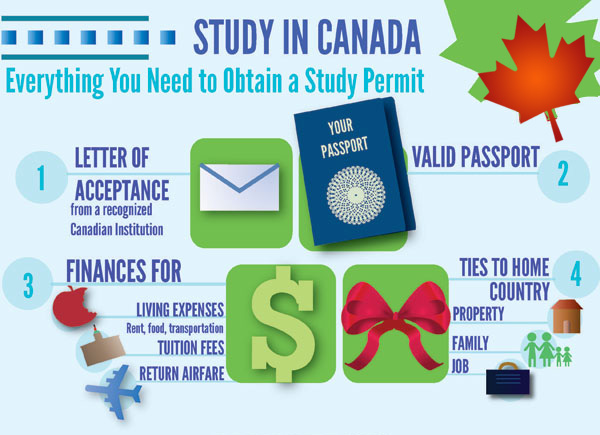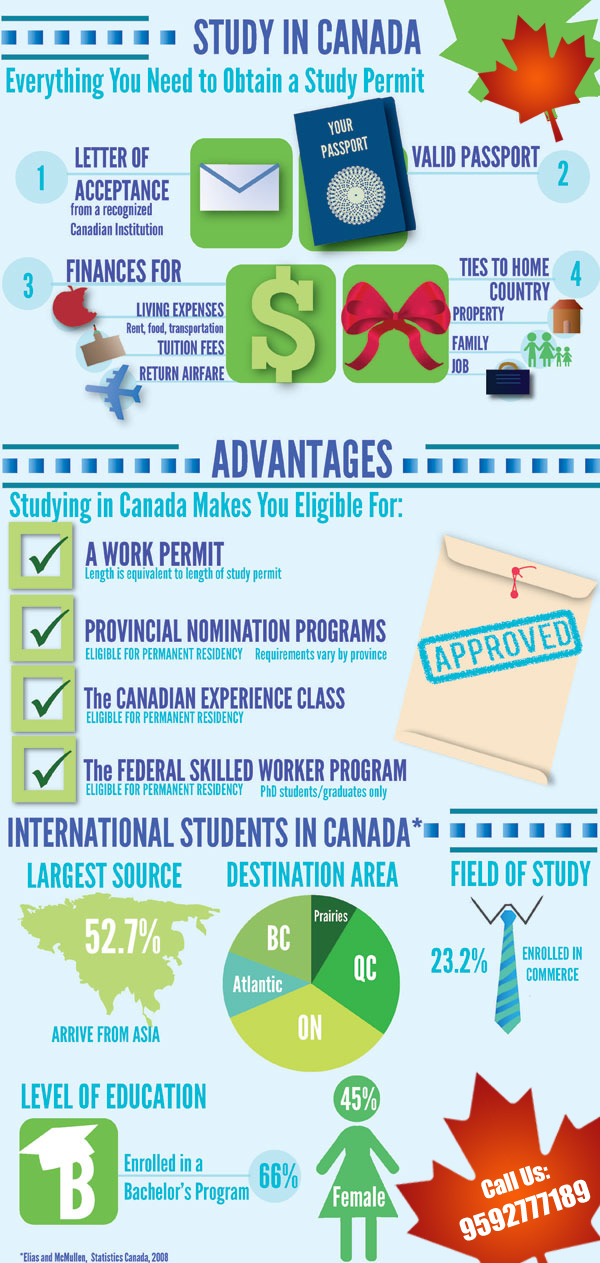
CANADA AT A GLANCE:
1. Canada had been declared as the best country in the world to live in, for 8 years consecutively by the United Nations till recently.
2. Canada's economy has a growth rate of 4.7%
3. Canada offers free medical services to its Permanent Residents.
4. Education up to grade 13 is absolutely free. While higher education is subsidized.
5. After receiving citizenship, you can study and work in USA.
6. Employment insurance is offered to a person, who has worked for a minimum of 20 weeks and thereafter, gets unemployed.
STUDYING IN CANADA:
More than 130,000 students come to study in Canada every year and even more come to Canada to learn English or French. Foreign students bring a rich culture to Canadian Colleges & Universities. Your knowledge and skills are welcome in Canadian schools and Colleges.
The provinces regulate education and schools in Canada. For more detailed information on living and studying in a specific province or territory, contact Sri Global Educational Consultants (SGEC) where you wish to study.
CANADIAN EDUCATION SYSTEM:
In Canada, the provinces and territories are responsible for elementary, secondary and post – secondary education, which means there are significant differences between the education systems of the different provinces. However, standards across the country are uniformly high.
The following sections provide an overview of the Canadian education system.
1. Universities:
Degree from the Canadian Universities is considered to be equivalent or better than those of America and other Common Wealth Universities. There are many Universities located in different Provinces of Canada providing education in almost all the different fields. University degrees are offered at three consecutive levels - bachelor’s, master’s, and doctoral with the possession of a degree from the lower level generally a prerequisite for admission to the next. Some universities also offer diploma and certificate programs. Generally speaking, university diplomas and certificates require one or two years of study in a specific field or discipline.
2. University College:
A University College offers University Degree as well as College Diplomas and Certificate Programs. Their strong student support services, small classes and strong campus environment distinguish the University Colleges.
3. Community College:
These Institutions have the primary function of responding to the training needs of Business, Industry and Public Services Sectors. Community colleges offer diploma courses in a wide range of semi-professional and technical fields. These programs generally involve two or three years of full-time study. In addition, colleges provide general education and literacy programs, professional upgrading, and workshops and also offer specialized training in a single field such as, Information Technology, Business Management, Hotel Management. Many colleges also offer specialized postgraduate diplomas to students who already have a diploma or degree.
4. Technical College:
The technical colleges are privately owned and operated schools with the main objective of preparing students for the job market after a short period of instruction. The emphasis here is on the practical aspects over a broad range of programs. These colleges have highly competitive fee structure.













